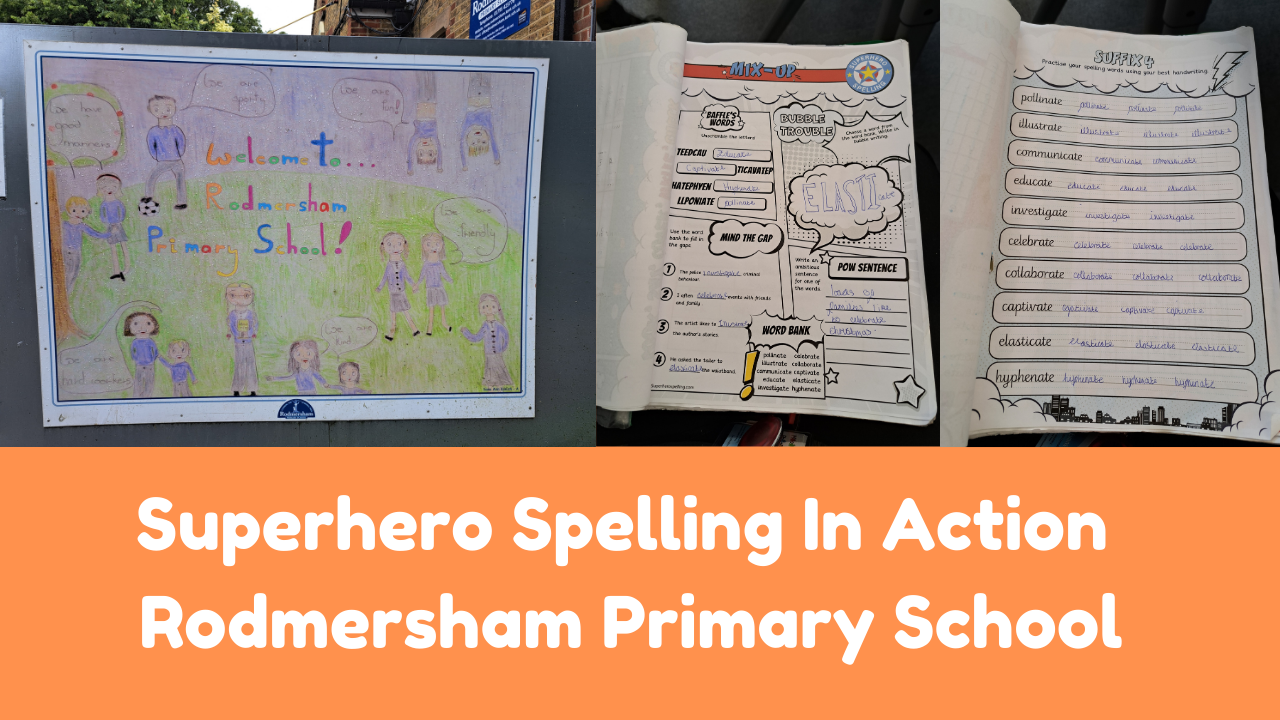

You will often hear in a staff meeting someone say, “The research shows…” followed by a justification of their point! But do they really know what the research shows? This is why I enjoy dipping into the Education Endowment Foundation’s work—it truly is based on rigorous research. Sometimes it surprises me, and sometimes it confirms my beliefs.
We constructed Superhero Spelling in line with recent work on cognitive science. I particularly appreciated Rachael Cattrall’s two blogs on the subject. Many of these features are deeply embedded into the learning cycle for Superhero Spelling, especially cognitive load theory and the chunking element. However, the points go wider than our scheme and would be useful for any learning sequence. Here are the 10 clear takeaways:
Rachael explains that understanding how memory works—through encoding, storage, and retrieval—is crucial. Knowledge stored in long-term memory and retrieved into working memory forms the foundation of effective learning.
Cognitive load theory highlights the importance of not overwhelming students’ working memory. By balancing the complexity of tasks, we can help students process and retain information better.
Retrieval practice isn’t just about quizzes. It’s about actively recalling information to strengthen memory. This can include techniques like brain dumps and think-pair-share activities.
Incorporating multiple senses in learning—such as through music, movement, and colour—can enhance memory retention. This aligns well with our SHS techniques like rap and memory writing.
Breaking down complex information into smaller chunks, like using pyramid writing, helps manage cognitive load and makes learning more manageable for students.
Providing clear rules and patterns, such as spelling rules, helps create a structured learning environment. This structure supports cognitive processing and memory retention.
Rachael emphasises the importance of creative and playful learning activities. Using art, games, and technology can make learning more engaging and memorable.
To improve retrieval strength, it’s essential to practise recalling information regularly. This helps move knowledge from short-term to long-term memory.
When students engage in retrieval practice, providing feedback is crucial to correct misconceptions and reinforce correct information.
When planning retrieval activities, consider what knowledge is most important and how it supports current learning objectives. This helps ensure that retrieval practice is meaningful and effective.
Food for thought I would say for anyone interested in learning and understanding how we actually commit things to long term memory.
Here is the link to the blogs: EEF blog: Not another quiz! Refining retrieval practice | EEF (educationendowmentfoundation.org.uk)
Register
To get access to our FREE samples.